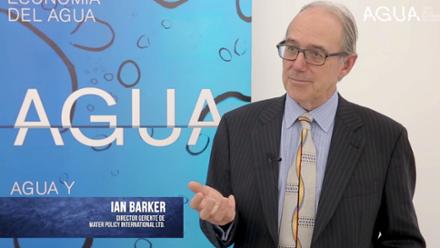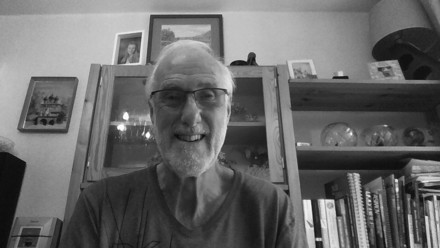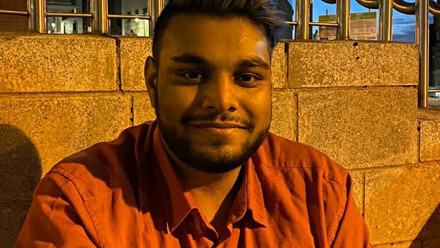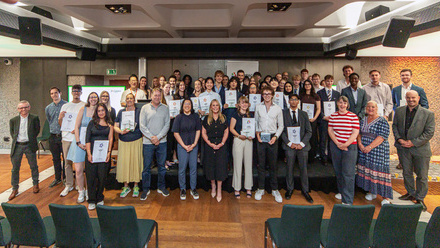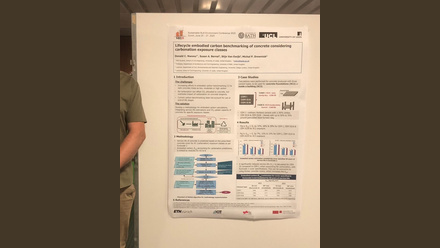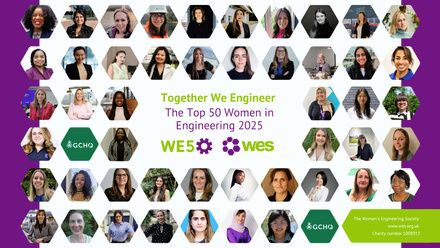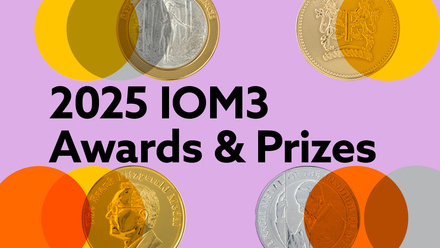Get talking - Ably making a difference
Challenging the misconceptions of being ably different, Martin Griffin FIMMM, Principal Engineer at COWI UK and Chair of the Institute’s Ably Different in Materials, Minerals and Mining (ADM3) group, discusses neurodivergent experiences and how people with different abilities can bring advantages to the workplace.
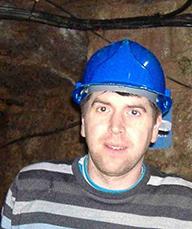
Everyone is to some extent differently abled because we are all born with differences. Myself being neurodivergent, I am a mixture of conditions – autism, dyslexia, dyspraxia and also visually impaired. All of which have their own unique and overlapping challenges at work and in society.
To counteract my day-to-day challenges, I have different coping strategies for specific situations or symptoms that may be causing unseen suffering and pain. When my coping strategies work well, I feel like I fit in, but when they don’t, I'm a mess! There is a need to challenge the marginalisation of ably different people.
Being one of a billion people worldwide who live with some kind of disability, my conditions are real, common, lifelong and messy when they are either handled incorrectly internally or external influences adversely affect me.
According to the World Health Organisation, 74% of those with disabilities don’t use a wheelchair or anything else that might visually signal their impairment to others. In the UK alone, it is estimated that approximately one in five people are classified as disabled, accordingly to the Family Resources Survey 2018-19. That’s 14.1 million fellow humans in the UK who are classified as being disabled – the charity Scope reported a similar number in 2020.
All my conditions are invisible and can either be constraining or strengths – the manifestations are extreme reactions and are two sides of the same coin. They have shaped me, but they do not define who I am. Instead, they make me ask, what is considered normal and what makes us unique? Sure, my conditions and the interrelationships between them can drive me crazy at times, but they push me to empower others at work and elsewhere.
The COVID-19 pandemic has given many of us fresh opportunities and allowed us to reset our goals. We have seen our freedom eroded, witnessed our mortality and experienced the limitations of our lives. In times of struggle, we often open our eyes to simple joys and the things that really matter which we previously have taken for granted. Being labelled ‘disabled’, I have faced many challenges – these come in big and small guises, one-off events, or recurring situations, but confrontation is key. Encountering them reminds me that many limitations are fake. We can continue to grow by gaining further insights into our conditions and wellbeing.
I am very fortunate to be in full-time employment as a consulting engineer for a supportive company and forward-looking senior leadership team. I am privileged by working in the UK, but has the UK progressed since the adoption of the Equality Act (2010)? A gap remains between employment rates – those who are registered disabled at 46% compared to 79% for non-disabled. Disabled people are more likely to be unemployed and are three times more likely to be without a job. Once in work, the UK National Office for Statistics and Scope report that 53% of disabled people have experienced bullying/harassment and 58% felt at risk of losing their job.
It is acknowledged that the UK is heading towards an intensifying skills shortage in the engineering sector. Engineering UK finds that an additional 1.8 million engineers and technically qualified people will be needed by 2025. Employers need to throw open their doors to as many people as possible to fill these spaces, and part of that lies in being fully inclusive. The void offers challenges and opportunities for employers and employees alike.
Research has shown disabled people are constantly solving problems simply to get around in the day-to-day world, innovating their way through challenges. We have valuable skills including resilience, creativity, determination, innovation, persistence and more. The sweeping generalisation that we are less productive than non-disabled people is misleading. We are just as productive as non-disabled people, have significantly less time off sick, have fewer workplace accidents, and can be loyal employees.
Disabled employees and their employer should work together to remove any barriers based on trust and time. Disabled employees shouldn’t be inhibited by barriers and can maintain a lifelong fulfilling career in their chosen profession. As we move forward within a diverse collective, including people who do not all think or work the same way, we will have future teams that are more creative, agile and robust, so all can thrive in their chosen career creating accessible and sustainable solutions to benefit everyone.
If you would like to get involved in the ADM3 group, contact the group here.


